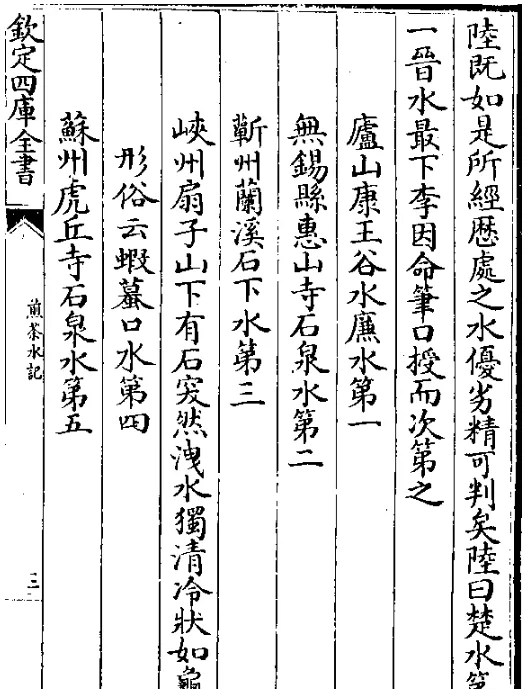Tang Dynasty tea is called prosperous because there is a group of tea stars marked by Lu Yu. If Lu Yu is alone, he certainly cannot be called the Tang Dynasty an era of tea culture prosperity. In fact, Lu Yu's circle of friends has many tea stars. For example, Kyaukran, a friend of Lu Yu, wrote the book "Tea Tips" and first mentioned the tea ceremony in the poem. The other is Li Yue, who loves tea and once discussed tea with Lu Yu to promote the method of "live fire sencha".
Li Yue was born in the Tang Dynasty, and his father Li Mian (汧公) served as prime minister. According to records, Li Yue was good, elegant and far-reaching, and loved the mountains and forests. He is good at piano, poetry, wine, tea, strange stones, good at painting plums, and fine in calligraphy. He loves to make friends, not close to pink dai, never married in his life, all his friends are elegant, often taste tea and listen to the piano, and talk all day long. Because Li Yue loved the calligraphy of the Liang Dynasty calligrapher Xiao Ziyun, he saw that there was Xiao character inscribed on the wall in western Zhejiang, so he moved the entire wall to Luoyang, built a villa for collection, and called himself "Xiao Zhai". He was promoted to a military officer, and then abandoned his official and eventually went into hiding.
Li Yue was good at tasting springs and tasting water, "he was once sent to the east of Jiaoshi County, Shaanzhou, loved the canal water to flow clearly, and forgot to send it on the tenth day" (Zhao Xuan's "Because of the Words") When there is good water, he will linger and forget to return, and can live for ten days. According to the "Biography of Tang Caizi", Li Yue "loves tea and discusses water products with Lu Yu and Zhang Youxin in particular detail.". During the reign of Emperor Dezong of Tang, Li Yue served as a Dali commentator in the shogunate of western Zhejiang, had contacts with Lu Yu, who lived in Huzhou, had a tea ceremony, and also discussed the water quality of sencha with Yongjia Thorn Shi Zhang. Li Yue good tea is famous in the circle of friends, there are many people who come to rub tea, "the number of guests is not limited, the tea container is not tired", Li Yue treats guests with tea, often makes tea all day without rest, and enjoys it tirelessly.

Zhang Youxin is the author of "Sencha Water Record"
Wen Tingjun of the Tang Dynasty recorded Li Yue's sencha experience in the "Record of Tea Picking": "Li Yue, Wang Gongzi also." A lifetime is not close to pink daisy, sexual discernment tea. When tasting the tea, it must be simmered slowly and fried live. Living fire is the flame of charcoal. The so-called "slow fire, live fire frying", refers to the popular cake tea at that time, sencha to first bake the cake tea, to use a slow fire, that is, simmering, and then mashed into the soup and fried. The decoction must be made by live fire, that is, a martial fire, and the charcoal must emit flames. Then he said, "When the soup is boiling without vain, you can raise tea." At the beginning, the fish eyes are scattered and slightly sounded; in the middle, the springs on all sides are gushing, and the pearls are accumulated; and at the end, the waves are rising and the water vapor is completely eliminated, which is called the old soup. The method of three boils, non-living fire can not be achieved. Li Yue is proficient in tea ceremony, and the method of "three boiling of live fire decoction soup" advocated by Li Yue is the sencha method in Lu Yu's "Tea Classic" "Five Boiling", which shows that Li Yue and Lu Yu are good friends, and their Sencha experience is the same.
Compared with the later generations who praised Lu Yu as the "tea god", the poetry praise painting has been passed down from generation to generation, and this Li Yue is much more deserted. But Su Dongpo has not forgotten Li Yue's contribution to the tea ceremony, he has a poem in "Jijiang Sencha" "Living water must be cooked with live fire", and in "Trial Courtyard Sencha", there is "Jun is not seen, in the past Li Sheng was hospitable to fry by hand, and Gui sent a new spring from live fire", which is to praise Li Yuejing's deeds of Sencha's love of water.
Li Yuecun has one volume of poems, one volume of musical scores, and four volumes of the New Notes on the Tao Te Ching. The Quan Tang Poems contained ten of his poems.
Li Yue's "Jiangnan Spring" Poetic Intention (Ancient Painting)
The pond spring warm water patterns open, the willow weeping silk between the wild plums.
The river is full of good luck every year, and the spring colors of Pengying are coming one after another.